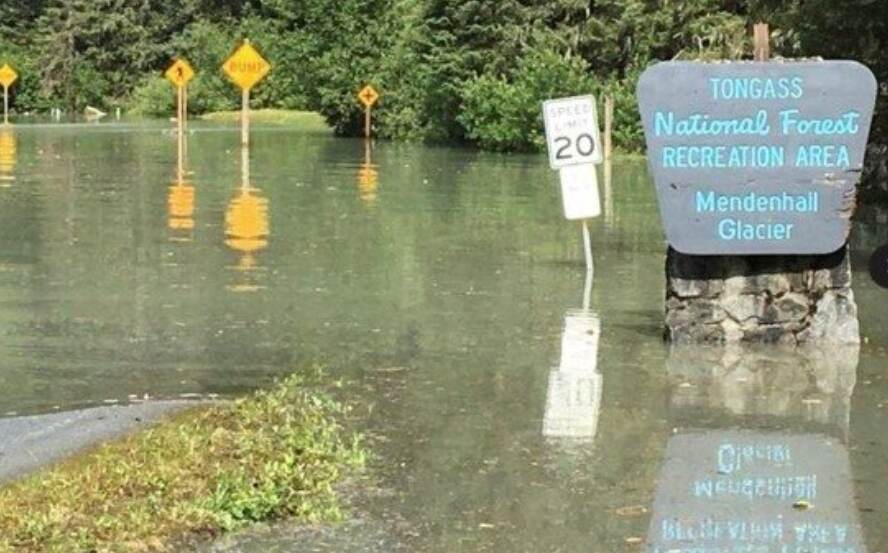Record Flooding Strikes Juneau, Alaska as Glacial Dam Bursts: Climate Change Crisis Intensifies
Record flooding wreaks havoc in Juneau, Alaska as a glacial dam bursts, destroying structures, forcing evacuations, and eroding riverbanks. Climate change may have contributed to this alarming event.
Record flooding has wreaked havoc in Juneau, Alaska's capital city, following a glacial dam outburst. At least one structure has been destroyed, and residents on one street were forced to evacuate. The National Weather Service (NWS) received reports of trees collapsing into the Mendenhall River as water levels rose, causing the banks to erode.
Glacial outburst flooding occurs when water trapped in thinning ice dams escapes through cracks, a phenomenon that has been increasing globally due to climate change. The water level in Mendenhall Lake reached nearly 15 feet, surpassing the previous record set in 2016 by 3 feet.
This rise is 5 feet above moderate flood levels. While water levels have been receding rapidly, a flood warning remains in effect until 10 a.m. local time, according to the NWS. Scientists have linked such extreme weather events to human-induced climate change. The role of climate change was "absolutely overwhelming" in the record-breaking heatwaves experienced in North America, Europe, and China in July.
Similarly, glacial melt and heavy monsoon rains caused by climate change resulted in extensive flooding in Pakistan last year, damaging crops, infrastructure, and causing numerous fatalities. Juneau officials have declared a state of emergency following the record glacial flooding.
The flooding was triggered by a major outburst from Suicide Basin, a side basin on the Mendenhall Glacier. Videos shared on social media depict homes and trees collapsing into the Mendenhall River as rising waters erode the riverbanks. Fuel tanks and hazardous materials containers have also been affected by the floodwaters.
Although floodwaters are receding, the NWS has warned about lingering hazards in and near the Mendenhall River. Suicide Basin has released glacier lake outburst floods since 2011, causing inundation along Mendenhall Lake and Mendenhall River. The maximum water level in the lake reached 14.97 feet, surpassing the previous record set in July 2016.
Areas that have never experienced flooding before reported significant inundation, and the banks of the river remain highly unstable. It remains unclear if climate change directly contributed to this flooding event, but scientists and experts are closely monitoring the situation.
Glacial outburst floods pose a risk to millions of people worldwide, with a recent study identifying 15 million individuals at risk, primarily in India, Pakistan, Peru, and China. As the impacts of climate change continue to manifest, the frequency and severity of extreme weather events like glacial flooding are expected to increase. It serves as a stark reminder of the urgent need for global action to mitigate and adapt to the effects of climate change.





